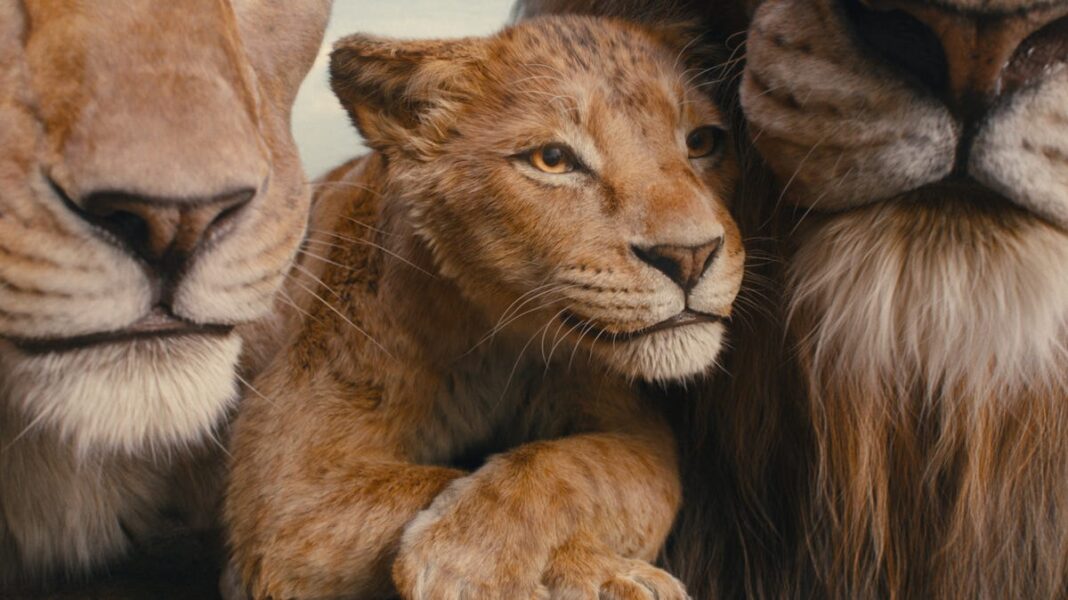Lin-Manuel Miranda shares the ‘Mufasa’ line that gave him ‘the first lump in my throat’
Barry Jenkins did what many do when they first hear a new Lin-Manuel Miranda song: he got lost in the music.
The Disney prequel “Mufasa: The Lion King” (now showing in theaters) combines the talents of the Academy Award-winning director of “Moonlight” with the creator of the celebrated musical “Hamilton” to explore the backstory of the infamous rivals Mufasa and Scar. Jenkins reminisces about receiving the first song from Miranda for the film, titled “I Always Wanted a Brother,” and immediately thought, “This is a hit.”
“Kids will be singing this tune because I’m singing it,” Jenkins chuckles. “I find myself in my car in the morning belting it out. I’m in line for coffee, tapping my foot along. It’s one of those unforgettable numbers. This is how it’s done.”
“Mufasa” presented a fresh challenge for Jenkins, especially since films like “Moonlight” and “If Beale Street Could Talk” didn’t include realistic, computer-generated animals like lions and zebras. “It was exciting to explore a new territory,” Jenkins says about “Mufasa,” which is a musical journey through the Pride Lands and acts as a sequel to the original 1994 animated “Lion King” and its 2019 live-action remake.
Narrated by Mufasa’s granddaughter, Kiara (voiced by Beyoncé’s daughter Blue Ivy in her debut), the future lion king (Aaron Pierre) gets separated from his family due to a flood and is rescued by Taka’s pride (Kelvin Harrison Jr.), who will later be known as Scar. The siblings grow as close as brothers and undertake a journey that pits them against the malevolent white lion Kiros (Mads Mikkelsen) while also testing their tight friendship.
Barry Jenkins drew inspiration from the classic ‘Lion King’ for ‘Mufasa’
While the film is filled with vibrant visuals, songs, and humor, Jenkins has uniquely shaped the Pride Lands by focusing on complex themes. “He brilliantly tackles serious subjects and relationship dynamics,” says British star Pierre. The film delves into vital aspects of communication and the intricate nature of love, emphasizing that it’s seldom a straightforward journey.
Jenkins has approached these themes in a way that resonates with younger audiences without coming across as condescending, allowing adults to enjoy it too, adds the actor.
How did Jenkins find a balance between serious issues and family-friendly fun? He leaned into the spirit of the original “Lion King.” “You could easily watch it for the first time at age 4 and then again at 34, and it would still resonate,” the director explains.
Keeping “the heart” of each scene was crucial for Jenkins. He highlights one of Pumbaa’s humorous remarks in the film: “Ugh, love. That sounds really unpleasant and not something I actually need or want.”
“It starts as a silly joke but evolves into something genuinely sweet,” he notes. “That encapsulates the essence of the entire film.”
‘Mufasa’ lines inspired memorable songs by Lin-Manuel Miranda
Miranda, known for creating original songs for Disney productions like “Moana” and “Encanto,” joined “Mufasa” because he wanted to witness Jenkins in action. He also aimed to craft songs that would truly deepen character connections.
The musical numbers emerged from discussions with Jenkins — “I’m a very flexible songwriter. I don’t just drop off a song and say, ‘See you at the premiere!’” — and also from impactful lines in the script by Jeff Nathanson. He remembers feeling “the first lump in my throat” when he read a scene where Taka and Mufasa race to determine if Mufasa can remain with…
“`
Miranda reflects, saying, “I thought, ‘That would make an amazing song title! That’s the feeling I want to convey to connect with these brothers.’”
Blue Ivy Carter features prominently in a pivotal ‘Mufasa’ sequence centered on outsiders
Jenkins expresses his appreciation for the opportunity to delve into various meaningful themes, particularly the concept of outsiders. This term is associated with Kiros and his aggressive pride, yet it resonates with many characters, including Mufasa and Taka. “This narrative of positive versus negative nurturing demonstrates how one character became an outsider after being cast out, while the other ascended to become the greatest king,” Jenkins explains.
The sage mandrill Rafiki (voiced by John Kani) delivers one of the film’s most touching messages to Kiara, saying, “Sometimes, the greatest pain arises from those who resemble you the most not loving you, leading to a hatred for everything.” Kani, who resumed his role from the 2019 film, shared insights with Jenkins about participating in “White Lion,” where he portrayed a protector of albino lions who are often rejected at birth.
“I told Dr. Kani, ‘Let’s work together to create a dialogue between you and Blue Ivy on this topic,’” Jenkins recalls. “‘Mufasa’ dives deep into various interpretations of feeling like an outcast or being excluded from the Circle of Life in ‘Lion King’ terms. How we choose to react can either elevate us or diminish us, and this theme is crucial to the film’s emotional backbone.”

